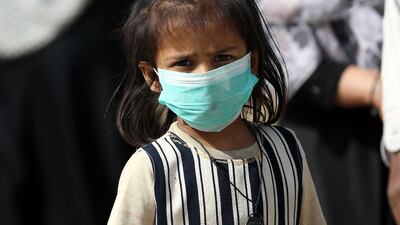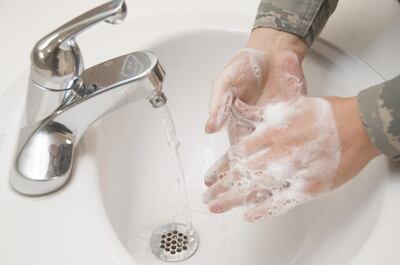Children are not immune to all the non-stop talk surrounding coronavirus and have likely come across it on various news mediums, including newspapers, television and social media. Before schools closed, it was a topic of discussion on such platforms, while at home, parents are talking between themselves or among family and friends. Children are perceptive and can observe that most adults seem quite worried about what is causing this illness called Covid-19.
They can sense the anxiety around them, an emotion that leads to many questions in young minds. They may add their own imagination and create their own catastrophic stories, so it becomes important that we arm them with appropriate knowledge as well as answer their questions. Too much negative talk can create further anxiety; however, age-appropriate information can ensure they understand the disease.
The first question children may have is: what is coronavirus? Simply put, coronaviruses are very tiny germs that make people feel sick when they get into their body. Just like a flu, it causes stuffy nose, coughing, throat pain or fever. A few people with coronavirus may find it hard to breathe and need to go to the hospital.
The second question they may ask is: where did this new virus come from? Coronaviruses are a family of a few different viruses that cause flu-like symptoms, like colds and coughs. Most of these illnesses were very mild and did not require any serious treatment. However, now there is a new member in this family: Covid-19. Since it is new, our body is still learning how to fight it, so it is making a few people very sick and it is spreading from one to another.
Then the child may ask: how do you catch the virus? The coronavirus is thought to spread from person to person, especially between people who are in close contact – within a six-metre distance (demonstrate this space to your child). When a person who already has coronavirus coughs or sneezes, they send tiny drops carrying the germs into the air. These droplets may land on the mouth or nose of a person who is in close contact, or they may fall on objects around us and leave the germs there. It could be anything: the floor, a table, a chair, a toy. To make another person sick, these germs will have to get inside their body. So when a healthy person touches those places where the germs were left, and then touches their mouth, eyes or nose, these germs will get inside their body and make them sick.
Older children can be asked to adopt the following measures themselves, while young ones may have to be monitored. Tell them: clean your hands often, washing them with soap and water for at least 20 seconds, especially after you have used the bathroom, before having food, once you come back from the playground, or after blowing your nose, coughing or sneezing. You can also use hand sanitiser, but make sure you apply it all over the hands, including the sides and backs.
Don’t put your hands in your eyes, nose or mouth, especially if they are not washed. If you have a cough or feel a sneeze coming, cover your nose and mouth with a tissue, throw it into the trash and immediately wash or sanitise your hands.
Besides these conversations, parents can take certain precautions themselves to keep their families safe and informed. Avoid close contact with people who are sick. If you are feeling unwell, stay home, use a face mask and advise people who are in close contact with you to use face masks. Explain to children that the face mask is not required to be worn by everybody, according to health authorities. It is for those who are feeling sick or those taking care of people who are unwell, such as doctors, nurses and family members. If the child observes more and more people around him wearing the mask, reassure him by saying that those people are being extra cautious.
Take everyday preventive action and monitor that your children are doing so, such as cleaning your hands often with soap and water, and sanitisers. Teach them to avoid touching high-use surfaces in public, such as elevator buttons, door handles and handrails. If they do touch them, make sure they wash or sanitise their hands afterwards. Show them how you clean and disinfect your home, and practise routine cleaning of frequently touched surfaces, such as tables, light switches, handles, toilet sinks and mobile phones. As a family, avoid overcrowded places and non-essential travel.
The most important way to ensure that children follow these hygiene measures without being scared is to talk to them. Communicate the safety precautions you are going to follow and why you are going to follow them. Remain calm during these conversations even if you have to repeat yourself; don’t look anxious or panicked. It’s important to be a good role model, so your children can follow by observing.
Young people normally feel empowered when they know what to do to keep themselves safe, so remind them that they are taking care of themselves by washing their hands – that this is how they are going to kill germs and prevent them from spreading to others. You can also reward them for using good hygiene methods.
Dr Vishal Mehta is head of the paediatrics department at RAK Hospital


